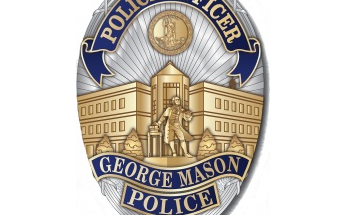Police department reforms, concerning relationships with racial minorities and their subsequent policy reforms, are trickling down to the university level. This comes at a time when police and community relations are especially tense following events in Ferguson, M.O., New York City, N.Y., and Charlottesville, V.a.
The University of Minnesota recently decided to remove race descriptions from their daily police logs and crime alerts. Legislatures in both Texas and Illinois are working on passing legislation that requires police departments for private universities to release their records to the public.
Under a federal law known as the Jeanne Clery Disclosure of Campus Security Policy and Crime Statistics Act of 1998, institutions of higher education are required to issue an Annual Security Report, have an updated public crime log, regularly disclose statistics and information about crimes that occur on campus and issue timely warnings about crimes that pose a serious ongoing threat to individuals on campus.
“For some, knowing they have all the information available about a crime, including the complete suspect description, makes them feel better informed and increases how safe they feel. But others – particularly Black men – have shared that suspect descriptions that include race reinforce stereotypes of Black men, create a hostile campus climate, and negatively affect their sense of safety,” reads a statement from the University of Minnesota.
According to Thomas Longo, Assistant Chief of Police at Mason, the only valid reason for reporting race in a crime log or a timely warning is if the descriptor will help the community identify a suspect, which, in turn, can enable the community to assist the police department in furthering their investigation.
Mason’s police are trained in the police academy and in Mason’s own in-house program to be sensitive and cognizant of cultural and racial differences, said Longo, noting that these factors can impact the encounters that campus police deal with and can determine the level of success they have.
In the community, Fairfax County Police Department has recently celebrated a record number of women and minorities in its graduating class, with four Asian-American graduates and seven female graduates out of sixty.
“Mason police are very committed to diversity on the department. Diverse recruiting in policing can often be quite challenging, but Mason police have had success in this and currently have a diverse force of officers including gender, race, and ethnicity,” Longo said.
Salim Willis, a sophomore and global affairs major, thinks that steps like those that the University of Minnesota are taking are “a good gesture,” but actually do very little to change the subconscious prejudice that many individuals, including police officers, have.
“I think they are just trying to do that so nothing happens to them where they have a big scandal, like in Ferguson,” Willis said.
For Caroline Egli, a sophomore and government and international politics major, racial conflicts between police departments and college communities may speak to the larger issue of a lack of transparency. Egli, along with the Mason chapter of the Roosevelt Institute, is working towards organizing a “Know Your Rights” campaign to facilitate dialogue between Mason PD and students.
“We want to try and better clarify what rights students have and what rights the police have,” Egli said. “Once you bridge that gap, you can start having more civil and honest conversations about race.”
Illustration Credit: Laura Baker




